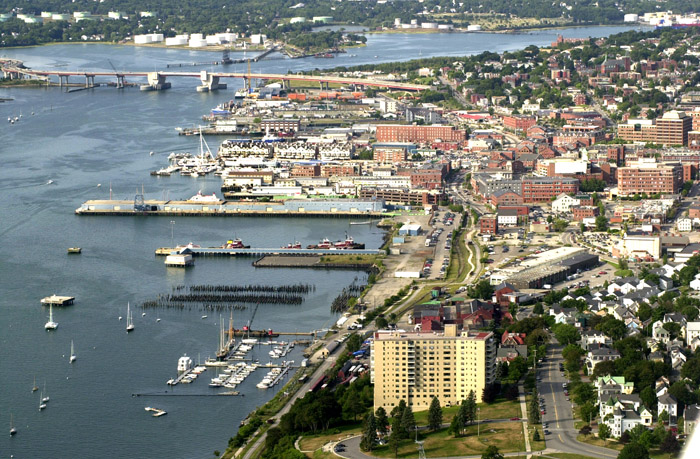According to a proposed zoning amendment, the Portland Central Waterfront Zone exists to “protect and nurture water-dependent and marine-related uses so that they may grow and prosper in an environment dedicated to this purpose.”
But how proposed changes are implemented could do just the opposite and turn Portland’s working waterfront into a sterile commercial district — downtown with water views.
Decline in the commercial fishing industry, changes in waterfront economics and the steady pressure of property owners who don’t feel they are getting a fair return on their investments are pushing the city to consider relaxing the strict zoning passed by voters in a referendum.
The City Council will receive a plan this month that was put together with the guidance of pier owners and some of their marine tenants. But there are still critics who say the zoning would take too much from the fishermen, bait dealers and processors who cannot survive without water access.
How well the change in rules would maintain space for marine businesses while allowing the property owners to expand their businesses will be a key challenge.
City Councilor John Anton, one of three councilors on the Community Development Committee, has proposed a series of ideas to build more protections for working waterfront users.
His proposal would treat the Commercial Street side of properties differently than the water side, allowing more non-marine related shops and restaurants along the street, but would maintain restrictions along the piers.
Anton also proposes requiring new non-marine businesses to demonstrate that off-street parking for their proposals would not interfere with the waterfront uses. That could limit the number of non-marine businesses, but it would also provide protection for the water-dependent ones and keep them from being crowded out from the piers.
The kinds of conflicts that could occur were on display in the recent negotiations between the city and Pierce Atwood, the law firm that plans to move to a renovated waterfront building. Representatives of the law firm were concerned that trailers filled with lobster bait were too close to their project. The trailers were moved.
There will not always be a place for such businesses to move that’s still close enough to the water. That’s why the city should not risk loosening the zoning regulations too much.
Send questions/comments to the editors.



Comments are no longer available on this story